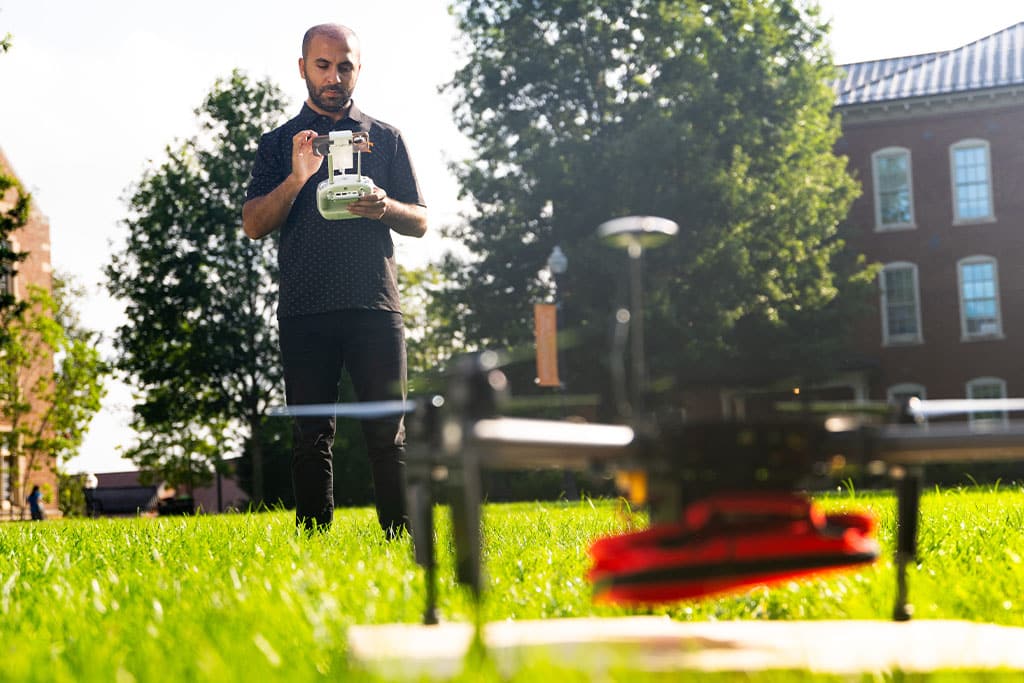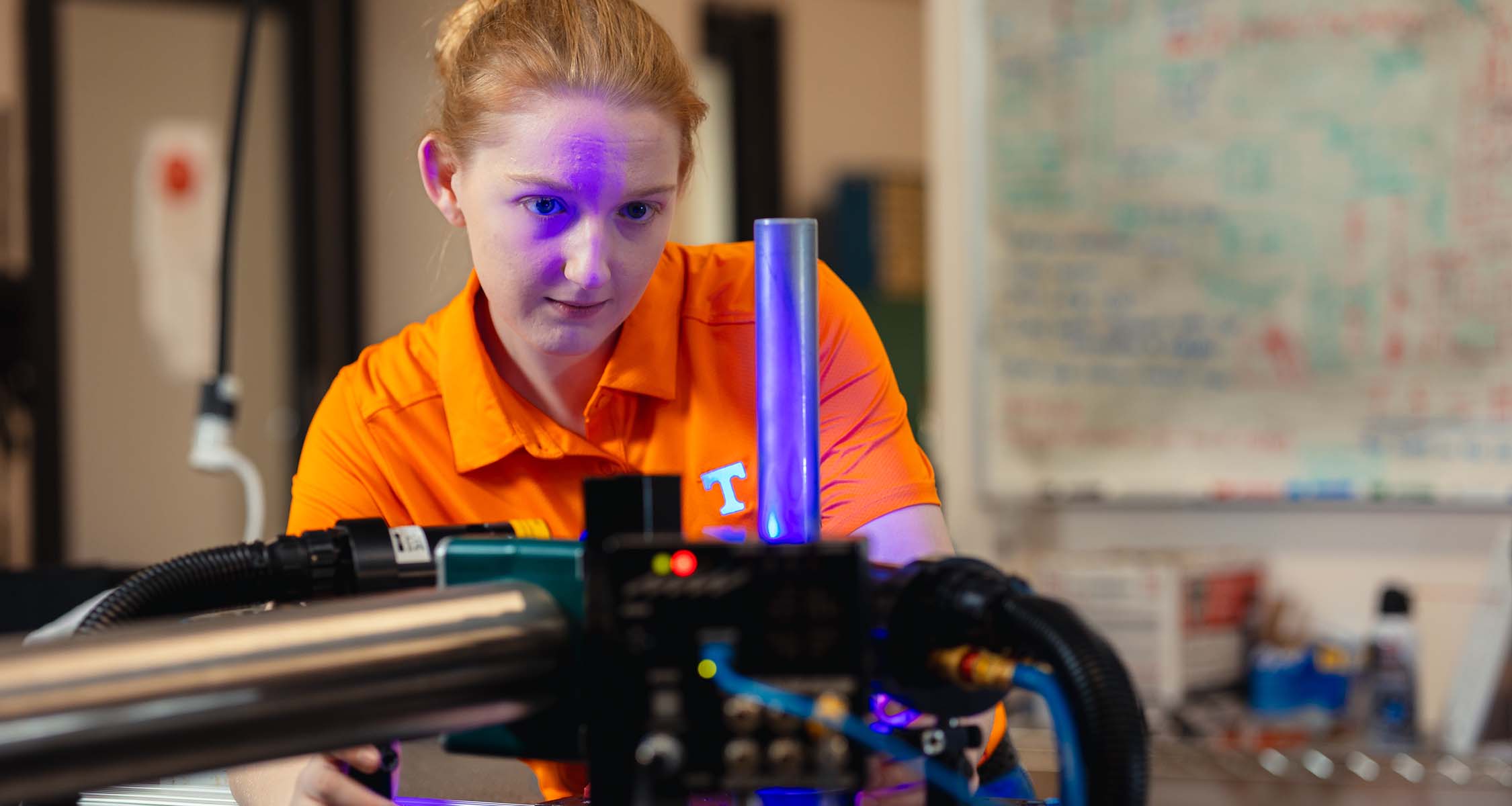Graduate programs
PhD in Aerospace Engineering
UT’s aerospace engineering PhD program is research-intensive designed for those ready to make significant contributions to aerospace science and technology. With faculty experts in high-speed aerodynamics, propulsion, structural dynamics, and space systems, the program positions graduates to lead innovation in industry, government, and academia.
Program Overview
The aerospace engineering doctoral program focuses on original research and advanced technical coursework in aerospace engineering, culminating in a dissertation that contributes new knowledge to the field. Students work closely with faculty mentors and often collaborate with organizations like the UT Space Institute, NASA, and the Department of Defense. The program supports full-time and part-time students and offers access to state-of-the-art labs and computational facilities.

Why Study at UT?
UT’s location and partnerships provide unmatched access to aerospace research resources and industry connections. PhD students contribute to projects in hypersonics, autonomous flight, space vehicle design, and propulsion systems. The program’s focus on high-impact, collaborative research prepares graduates for leadership roles in national labs, aerospace firms, and top-tier universities.
Concentrations
Concentration specific courses for the following four concentrations are selected in consultation with the major professor and guidance committee:
- Applied Mechanics
- Nuclear Space Science and Engineering
- Systems and Controls
- Thermal-Fluid Mechanics

Our Curriculum
The PhD in Aerospace Engineering Program requires a minimum of 72 credit hours beyond the bachelor’s degree, including at least 24 hours of dissertation research (AE 600). Specific course requirements depend on whether a student enters with a BS or an MS degree:
- With an MS: At least 12 additional hours of graduate coursework (not including dissertation, AE 601, or seminar credits).
- With a BS: At least 42 hours of graduate coursework (also exclusive of dissertation, AE 601, and seminar credits).
All students must also complete:
- A minimum of 9 credit hours of graduate coursework in mathematics courses numbered 400 or above with a minimum of 3 credit hours numbered 500 or above. The department may approve other courses with sufficient mathematical content to meet this requirement.
- A minimum of 21 credit hours of graduate coursework in aerospace engineering (AE) or other courses offered in MABE numbered 500 and above approved by the department.
- A minimum of 6 credit hours of graduate coursework is required at the 600-level, exclusive of AE 600 and AE 601.
- The total number of approved coursework and dissertation credit hours must meet the university’s requirement of a minimum of 72 credit hours, inclusive of AE 595 and AE 601.
In addition to coursework, all students must:
- Meet all departmental course requirements.
- Pass a written and oral comprehensive examination.
- Presentation of a dissertation proposal to the student’s advisory committee and approval of that proposal by that committee.
- Successful defense of the dissertation.
Featured Courses
Check out some of the courses that our students take as part of the mechanical engineering program. For a full list of courses, use the link below.
AE 601 Doctoral Research Methodology
Methods of planning and conducting original research and proposal writing.
AE 617 Discontinuous Galerkin Finite Element Methods
Comparison and conventional and discontinuous Galerkin (DG) methods
AE 655 Advanced Topics in Computational Fluid Dynamics
Modern approximation theory for Euler and Navier-Stokes conservation systems, compressible flow, hyperbolic forms, boundary conditions. Weak forms, extremization, finite element/finite volume/flux vector discrete implementations, a priori error estimates, accuracy, convergence, stability. Numerical linear algebra, approximate factorization, sparse matrix methods. Dissipation, Fourier spectral analysis, smooth and non-smooth solutions.
AE 660 Nonlinear Finite Element Methods
Theory and practice of nonlinear finite element methods focused on solid mechanics applications. Treatment of geometric nonlinear kinematics and inelastic material response. Development of linearized expressions for use in the Newton-Raphson algorithm. Programming of element and material subroutines.

Join Us on Rocky Top
Apply to Grad School
Ready to become an Engineering Vol? Want to learn about our admission requirements for Grad School? Use the links below to learn more about how to join our Volunteer community!
